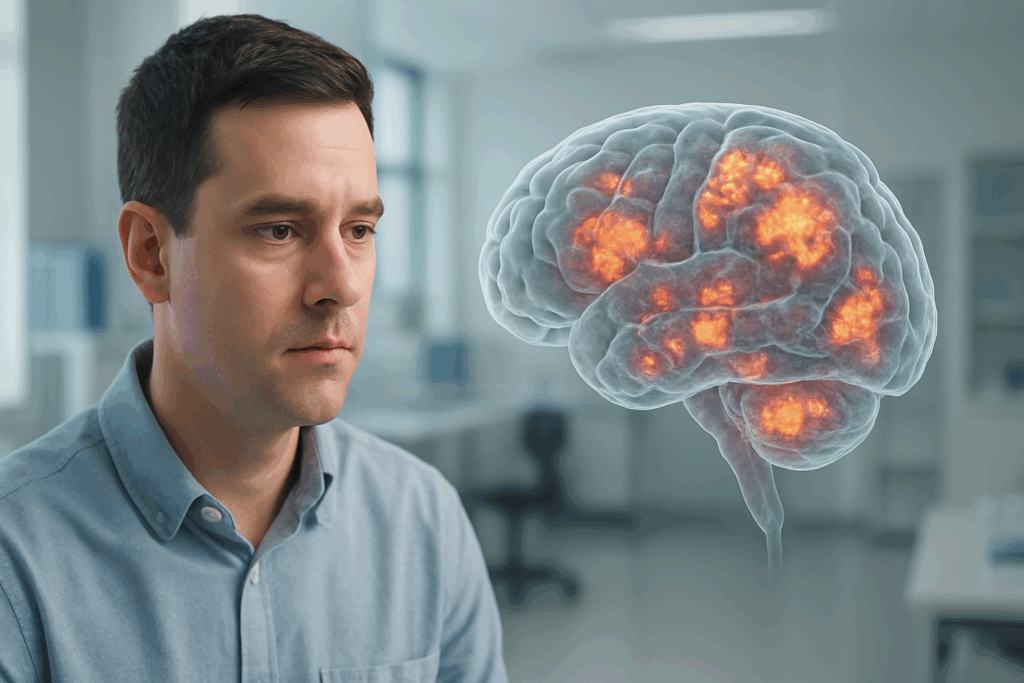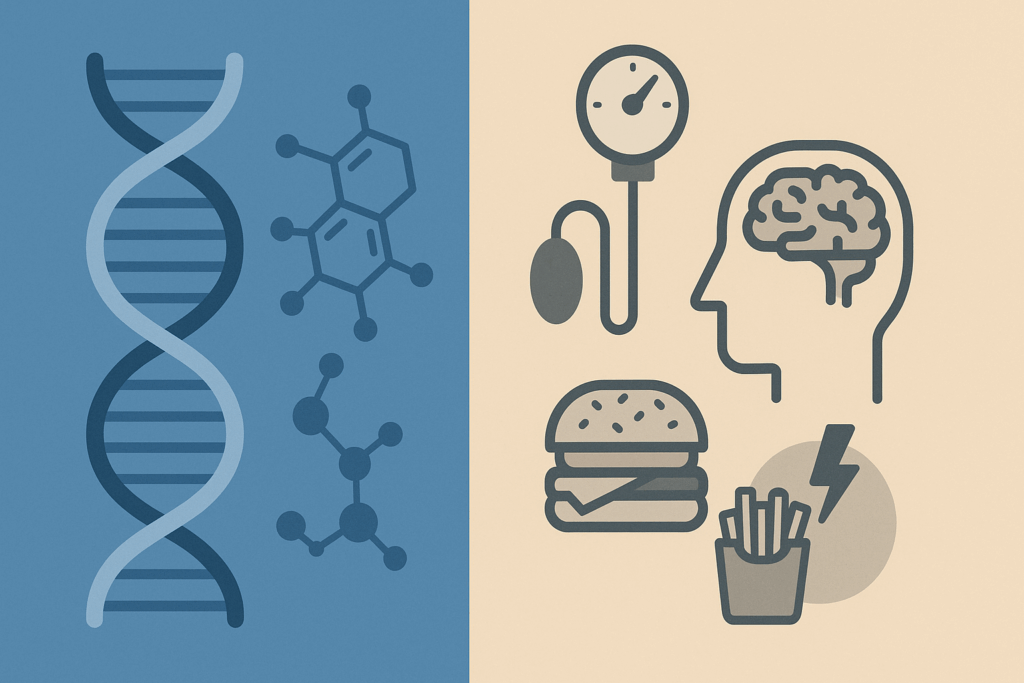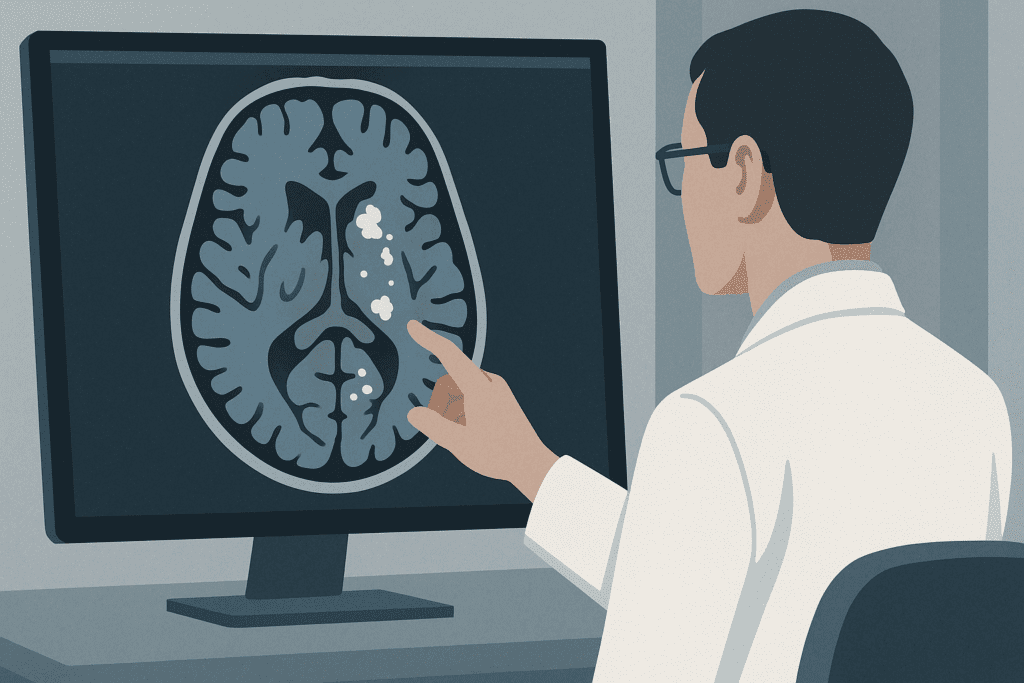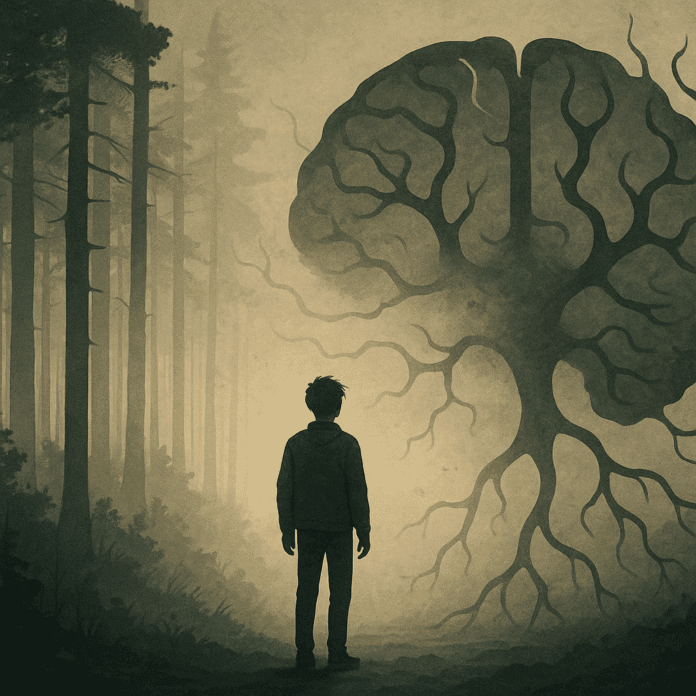Dementia is often perceived as an inevitable consequence of aging, a condition relegated to the twilight years. However, a growing body of research paints a more complex and urgent picture—one that includes the troubling rise of early onset dementia. Defined as dementia that begins before the age of 65, early onset dementia challenges traditional timelines and calls for a reexamination of how we recognize, diagnose, and manage cognitive decline across the lifespan. As science delves deeper into the nuances of neurodegenerative diseases, we are learning that when does early onset dementia start is a critical question, as symptoms may manifest decades earlier than previously assumed. This article explores when early onset dementia starts, what the earliest symptoms look like, who is most at risk, and what the scientific literature reveals about the evolving understanding of this condition.
You may also like: How to Prevent Dementia and Alzheimer’s Disease Naturally: Expert-Backed Strategies to Reduce Your Risk Through Lifestyle and Diet

Defining Early Onset Dementia: A Distinct Clinical Entity
The term “early onset dementia” (EOD) is not a euphemism for mild symptoms—it is a serious medical diagnosis characterized by a progressive decline in cognitive function that interferes with daily life. While the general population may associate dementia with old age, early onset dementia age criteria typically include individuals who are diagnosed between their 30s and early 60s. The most common form of EOD is early onset Alzheimer’s disease, although frontotemporal dementia, Lewy body dementia, and other less common variants may also occur. What is considered early onset dementia hinges on both the age of onset and the presence of clinically recognized symptoms.
The earliest age for onset of dementia has been documented in individuals as young as their late 20s in exceptionally rare cases, although such early presentations are typically associated with severe genetic mutations. More commonly, early onset Alzheimer’s disease begins between ages 40 and 60, and often progresses rapidly compared to later-onset forms. Understanding what is the age for early onset Alzheimer’s is crucial for clinicians, patients, and caregivers alike, as it determines both the diagnostic process and the subsequent treatment plan.

Recognizing the Earliest Symptoms: What to Watch For
One of the major challenges in identifying early onset dementia is that the initial signs may be subtle and easily misattributed to stress, sleep deprivation, or other lifestyle factors. Many individuals report changes in memory, executive functioning, or visual processing that are brushed off as normal fluctuations. However, ignoring these early signals can delay diagnosis and intervention.
Among the most overlooked early indicators are visual processing issues. While many associate Alzheimer’s disease with memory loss, early Alzheimer vision problems may manifest as difficulty judging distances, problems with reading, or even mistaking visual cues in familiar environments. These symptoms can resemble other ophthalmological conditions, but when paired with memory issues or behavioral changes, they warrant a closer neurological assessment. Identifying these symptoms early is vital in understanding how early can dementia start and what pathways lead to diagnosis.
Signs of Alzheimer disease can also include language difficulties, mood changes, and a marked decline in problem-solving abilities. Unlike typical age-related forgetfulness, these symptoms progress and interfere with the individual’s occupational and social life. For someone in their 40s or 50s, this could mean struggling with work tasks that were once routine or becoming socially withdrawn due to embarrassment or confusion.

Understanding What Causes Early Onset Dementia
The underlying causes of early onset dementia are multifactorial, often involving both genetic and environmental components. One of the most well-established genetic markers is the presence of mutations in the APP, PSEN1, or PSEN2 genes, which are strongly associated with early onset Alzheimer disease. In these cases, individuals may begin showing symptoms as early as their 30s or 40s. Understanding what can cause early onset dementia in genetically predisposed individuals helps inform preventative strategies and early screenings.
However, genetics is only part of the story. Traumatic brain injuries, certain viral infections, autoimmune conditions, and cardiovascular risk factors such as hypertension and diabetes may also increase the likelihood of developing dementia at a younger age. These modifiable risk factors make it all the more critical to identify early warning signs and adopt healthy lifestyle choices that could potentially delay or prevent symptom onset. Public health awareness campaigns must begin to emphasize not just the symptoms, but also what age can dementia start and what proactive steps individuals can take long before retirement age.

How Young Can Dementia Start? What the Evidence Says
While the average age for early onset dementia hovers around 50 to 60 years old, scientific literature has documented outliers. Case reports exist of individuals in their 30s exhibiting classic Alzheimer symptoms and confirmed pathology. In some cases, these individuals were initially misdiagnosed with depression or anxiety disorders, conditions that can mimic or mask cognitive decline in younger adults. This confusion often delays diagnosis and intervention by several critical years.
To address the question of what is the youngest age dementia symptoms can start, it’s important to understand the role of genetic testing and neurological imaging in modern diagnostics. Brain scans can now detect amyloid plaques and tau tangles—the hallmark pathologies of Alzheimer’s—well before significant cognitive impairment becomes evident. With this technology, researchers have begun to identify individuals at risk for early onset AD even before symptoms appear, raising ethical and logistical questions about preclinical diagnosis.
Case studies involving early onset AD illustrate that symptoms can appear as early as the mid-30s, especially in familial forms. These individuals often present with unusual features such as visual hallucinations, motor impairments, or severe disorientation. The question of how early can you get dementia is no longer hypothetical—it is a reality for a growing subset of the population.
Differentiating Early Onset Dementia from Other Conditions
One of the most pressing clinical issues in diagnosing early age dementia is distinguishing it from other medical or psychological conditions that can cause cognitive changes. Depression, anxiety, thyroid disorders, and even chronic sleep deprivation can mimic dementia, leading to either misdiagnosis or missed diagnosis. This diagnostic ambiguity underscores the importance of comprehensive neurological evaluations, especially for younger individuals who present with atypical cognitive symptoms.
It’s also essential to consider that signs of Alzheimer disease can overlap with other types of dementia, such as frontotemporal dementia, which tends to manifest with behavioral and language issues rather than memory loss. In such cases, the age of onset may further confuse diagnostic efforts, as these conditions do not always follow the expected progression seen in older patients with Alzheimer’s. Knowing what age does early onset dementia start helps medical professionals tailor their approach to differential diagnosis.
Visual signs, such as early Alzheimer vision problems, may also be misattributed to ophthalmologic issues, leading patients to consult optometrists instead of neurologists. Understanding the full spectrum of alzheimer disease symptoms, including those not traditionally associated with cognitive decline, is key to early and accurate diagnosis.

The Emotional and Social Toll of Early Onset Dementia
Beyond the clinical implications, early onset dementia carries a profound emotional and social burden. Individuals diagnosed in their 30s, 40s, or 50s are often in the prime of their careers, raising families, or financially supporting dependents. A diagnosis of early onset dementia can be devastating not only for the individual but also for their families and communities. When asked what age can you get dementia, few expect the answer to be as early as 30 or 40, yet this reality has life-altering consequences.
The stigma surrounding cognitive decline at a younger age further complicates matters. Because most people associate dementia with older adults, younger patients often encounter disbelief, dismissal, or social isolation. Employers may question their competence, and friends or family members may misinterpret symptoms as laziness or irresponsibility. Recognizing signs of Alzheimer disease in younger individuals requires both clinical sensitivity and public education to mitigate these social challenges.
Financially, the impact can be equally devastating. Early retirement, loss of income, and increased medical expenses place tremendous strain on households already managing the emotional weight of the diagnosis. This is particularly true in cases where early onset AD progresses rapidly, leaving little time for financial planning or care coordination.
Diagnosis and Prognosis: Navigating a Complex Path
Getting a timely diagnosis of early onset dementia is crucial for planning, treatment, and emotional coping. However, the diagnostic journey is often fraught with delays. Many general practitioners are not trained to recognize early onset AD symptoms in younger patients, leading to referrals to psychiatrists or misdiagnoses as mood disorders. This lag in accurate identification highlights the need for improved clinical training and public awareness about how young can dementia start.
Once a diagnosis is confirmed, patients face a future that is often more aggressive than in typical late-onset cases. The prognosis for early onset dementia is generally poorer, with a faster rate of decline and greater impact on daily functioning. This makes early intervention not only beneficial but essential. Medications such as cholinesterase inhibitors and memantine may help manage symptoms, although they do not halt disease progression. For some, participation in clinical trials offers hope and access to experimental treatments.
Knowing what is the age for early onset Alzheimer helps inform both personal and institutional responses. Workplaces, insurance providers, and healthcare systems must adapt to the reality that dementia is not confined to the elderly. Understanding what age is considered early onset dementia is no longer a matter of academic curiosity—it is a prerequisite for compassionate, timely care.

Research Frontiers: What Science Reveals About Early Onset Dementia
Scientific research into early onset dementia is evolving rapidly. From advanced brain imaging techniques to biomarker studies and genetic analyses, the field is uncovering new dimensions of the disease that were previously obscured. Researchers now understand that alzheimer early age onset often follows a different biological trajectory than later-onset forms, with greater involvement of the parietal and occipital lobes. This helps explain why early Alzheimer vision problems may appear before memory issues.
Another key area of research involves the identification of modifiable risk factors. Although genetic predisposition plays a significant role in early onset cases, lifestyle interventions—such as regular physical activity, a Mediterranean diet, and cognitive stimulation—are being explored for their protective effects. Studies examining the role of inflammation, gut microbiota, and vascular health are also yielding promising results that may eventually inform preventative strategies.
Neuroimaging studies have revealed that the earliest case of dementia may show amyloid deposition decades before symptoms arise. This has spurred debates about the ethical considerations of early detection. Should individuals undergo testing if no curative treatment exists? What psychological burden does preclinical knowledge impose? These questions are especially relevant when considering what is the youngest age dementia symptoms can start and how to address early intervention in asymptomatic individuals.
Frequently Asked Questions: Early Onset Dementia
1. Can early onset dementia be mistaken for other mental health conditions?
Absolutely. Early onset dementia often mimics psychiatric conditions, particularly depression and anxiety disorders, which can delay accurate diagnosis. For younger adults, cognitive changes may be misinterpreted as stress-related burnout or mood disturbances. This is especially true when early symptoms manifest as apathy, irritability, or decreased motivation—common in both depression and early onset dementia. Distinguishing between early onset AD and mood disorders requires a comprehensive neurological workup, including imaging and cognitive testing. Clinicians must remain vigilant, especially when such symptoms arise at an age not typically associated with dementia, to determine what age does early onset dementia start in a given patient.
2. How do early Alzheimer vision problems differ from normal visual changes with age?
Early Alzheimer vision problems are neurologically based and not due to aging eyes or refractive errors. Unlike presbyopia or cataracts, which affect lens clarity or focus, these visual disruptions arise from damage to the brain’s occipital and parietal lobes. Individuals may experience difficulty with depth perception, reading comprehension, or distinguishing contrast and motion. These symptoms can emerge years before memory loss and are often overlooked, even though they are part of early alzheimer disease symptoms. This underscores the importance of neurological evaluation when vision problems occur in conjunction with cognitive complaints, regardless of the patient’s age.
3. What social dynamics are unique to individuals diagnosed with early onset dementia?
People living with early onset dementia face distinctive challenges due to the unexpected timing of their diagnosis. They are often active in careers, parenting young children, or caring for their own aging parents. The loss of independence and early retirement can lead to identity crises, strained relationships, and social isolation. Unlike older adults with dementia, younger individuals may not have peer support or age-appropriate services tailored to their stage of life. Understanding the impact of early age dementia on family structures and social networks is essential to developing compassionate care models that reflect the realities of early onset.
4. What can cause early onset dementia outside of genetics?
While genetic mutations explain a significant portion of early onset AD, many cases occur without a clear hereditary link. Traumatic brain injuries, chronic inflammation, autoimmune diseases, and cardiovascular risks such as hypertension or diabetes can accelerate cognitive decline in younger adults. Exposure to neurotoxins or persistent untreated mental health conditions may also contribute to early onset dementia. These non-genetic risk factors highlight why asking what can cause early onset dementia requires a broad and individualized evaluation. Lifestyle interventions may mitigate some risks, particularly in people without a family history of Alzheimer’s disease.
5. Can you get dementia in your 30s, and how often does it occur?
Although rare, it is medically possible to get dementia in your 30s, particularly in the presence of aggressive genetic variants. The earliest case of dementia confirmed by biopsy and imaging involved a patient in their late twenties, though this remains highly unusual. However, more cases are being recognized due to improved diagnostics and greater awareness of what is the youngest age dementia symptoms can start. Such early diagnoses are emotionally and logistically complex, as they affect individuals at the beginning of their adult lives. As research improves, earlier detection methods may make it more common to identify dementia before age 40, even in individuals without known mutations.
6. How do signs of Alzheimer differ when it begins at a younger age?
Alzheimer early onset often begins with less obvious memory deficits and more atypical symptoms. Instead of forgetting recent conversations, younger individuals may experience difficulty with spatial reasoning, problem-solving, or interpreting language. Signs of Alzheimer disease in early stages may include uncharacteristic mistakes at work, social withdrawal, or even subtle coordination problems. These presentations differ from what most associate with age-related dementia and can result in misdiagnosis. When evaluating alzheimer early age onset, clinicians must broaden their diagnostic lens beyond standard memory assessments.
7. What is considered early onset dementia from a clinical standpoint?
From a clinical perspective, early onset dementia refers to the development of significant cognitive symptoms before age 65. However, the early onset dementia age bracket can include diagnoses as young as 30 or even earlier in rare cases. Determining what age is considered early onset dementia helps clinicians tailor diagnostic and therapeutic protocols for younger patients. Many health systems use age 65 as a dividing line for eligibility for dementia-related services, though the disease progression may be faster and more complex in early onset cases. Recognizing these distinctions is vital for equitable access to care and supportive resources.
8. Are there emerging treatments or trials specifically targeting early onset AD?
Yes, recent advances in biotechnology have led to several clinical trials targeting individuals with early onset AD. These trials often focus on monoclonal antibodies that aim to reduce amyloid plaques or tau tangles in the brain. Because early onset patients tend to have more aggressive disease progression, they are often prioritized for cutting-edge therapies. Participation in clinical research also offers access to personalized cognitive training programs, lifestyle interventions, and neuroprotective compounds. These developments are especially important when considering what is the age for early onset Alzheimer, as early intervention may yield the greatest benefit during the preclinical stage.
9. How early can dementia start in people with no family history?
Even without a familial link, dementia can start surprisingly early, though the incidence is lower. Environmental exposures, metabolic conditions, and chronic sleep disorders have been implicated in younger-onset cases. Researchers studying how early can dementia start are increasingly interested in the role of chronic stress and systemic inflammation as contributors to cognitive decline. While genetics remain a key factor, they are not the only path to dementia. Awareness that the earliest age for dementia can be under 50, even without known mutations, should prompt vigilance in recognizing early alzheimer symptoms in younger adults.
10. What are the long-term care considerations for someone with early onset dementia?
Caring for someone with early onset dementia involves planning decades earlier than most families expect. Long-term care may include specialized housing, cognitive therapies, and support for dependents such as children. Financial and legal planning is critical, especially because early onset often disrupts income during peak earning years. Since dementia may progress for 10 to 20 years, addressing quality of life is as important as medical treatment. Understanding what age can you get dementia and how young can dementia start enables caregivers and professionals to prepare for complex, evolving needs over an extended timeline.
Conclusion: Why Understanding the Earliest Age for Dementia Matters More Than Ever
In a world where neurodegenerative conditions are rising at alarming rates, understanding the timeline of dementia onset is not just a clinical question—it’s a public health imperative. The answer to when does early onset dementia start is no longer confined to post-retirement years. Today, clinicians, researchers, and affected individuals alike must grapple with the reality that dementia can begin as early as the 30s, and sometimes even earlier in rare genetic cases. Recognizing signs of Alzheimer disease in younger populations, including overlooked symptoms such as early Alzheimer vision problems, is critical for timely diagnosis and intervention.
The growing awareness of early onset dementia age thresholds underscores the need for enhanced screening tools, better public education, and more inclusive support systems. Whether it is understanding what age can dementia start or identifying what is considered early onset dementia, these insights have far-reaching implications for how we care for individuals, design healthcare systems, and approach the ethical landscape of early detection. By asking the right questions—how early can you get dementia, what can cause early onset dementia, and what is the age for early onset Alzheimer—we begin to illuminate a path forward that prioritizes empathy, science, and proactive care.
As the field continues to evolve, so too must our collective understanding of dementia’s earliest stages. The challenge now lies in translating these insights into actionable strategies that not only extend life but also preserve its quality. Early onset dementia is not just an earlier version of a late-life disease; it is a distinct and pressing medical reality deserving of our full attention, scientific rigor, and compassionate response.
Further Reading:
Early-onset dementias: diagnostic and etiological considerations
Early-Onset Alzheimer’s Disease
Early-onset dementias: Specific etiologies and contribution of MRI


